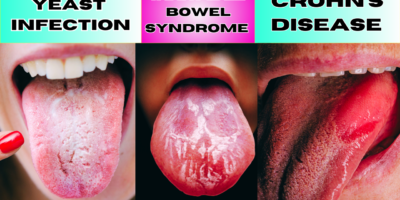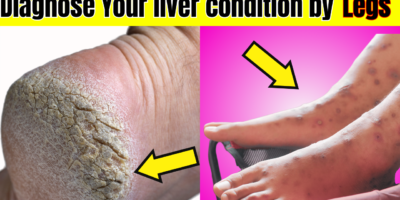Did you know Your Body gives these 7 Unobvious Signals Every Day if your Kidneys are suffering? So let’s find out how to recognise warning signs before they become alarm bells…
Hello, friend! Let’s be honest: when was the last time you thought about your kidneys? No, not when you had to endure traffic or desperately search for a bathroom in a movie theater. But just like that. Most likely, never. They are like the silent heroes of our body: they work 24/7, filtering blood, removing toxins and maintaining balance, and we remember about them only when something goes wrong. And then the question arises: how do you know that “wrong” has already started?
The kidneys aren’t just “bean-shaped organs in your back.” They’re complex biochemical laboratories. According to the National Institute of Diabetes and Digestive and Kidney Diseases (USA), chronic kidney disease (CKD) is nearly asymptomatic in its early stages in 90% of people. And by the time symptoms become apparent, kidney function may have been lost by 50% to 70%. But here’s the good news: Our bodies can send signals long before disaster strikes. Let’s decipher them together.
1. “Why am I swelling up like a yeast bun?”
Wake up in the morning and your face looks like a pillow? Rings dig into your fingers and your legs resemble a layer cake? Swelling is not always the result of salted fish at night. The kidneys regulate the levels of sodium and protein in the blood. When they fail, protein “leaks” into the urine (this is called proteinuria), and sodium retains water. The result is swollen eyelids and ankles.
Think about it: Do you often attribute swelling to fatigue or food? Maybe it's time to take a closer look?
2. “The toilet has become my second home… or vice versa?”
You either run to the toilet every 20 minutes or can’t squeeze out a drop despite drinking liters of water. Both scenarios are red flags. Frequent urination, especially at night, may indicate impaired kidney concentration function. And infrequent trips indicate urinary tract obstruction or decreased filtration.
Lifehack from nephrologists: The norm is 4-7 times during the day and 0-1 time at night. If the schedule fails for more than a week, it's time for a check-up.
3. “Zero energy. Maybe I’m a vampire?”
You get enough sleep, take vitamins, but feel like a squeezed lemon. Anemia may be to blame. The kidneys produce the hormone erythropoietin, which stimulates the creation of red blood cells. If the kidneys are lazy, there is less oxygen in the blood, hence the constant fatigue. According to a study by Kidney International , 30% of patients with CKD experience anemia before other symptoms appear.
Million dollar question: Do you often blame fatigue on stress? What if it's your kidneys?
It is important to note that this article does not provide diagnoses or claim that the reader may have any health problems. The article is based on research findings, doctors' opinions and provides information for informational purposes only! The beneficial properties of certain products are also written for informational purposes only, based on generally known data. Please note that this article does not encourage the use of these products as a method of self-medication! Any questions regarding health and dietary changes should only be discussed with your doctor in person.
4. “Meat? No, thank you…”
You suddenly feel sick from the smell of chicken or eggs, although before you could eat a steak for two. Nausea and loss of appetite are frequent companions of kidney failure. Toxins that are not excreted by the kidneys accumulate in the blood and irritate the gastrointestinal tract.

7 Unobvious Signals Your Body Gives You Every Day
Test yourself: If the aversion to protein foods lasts more than a week, it’s not just a whim.
5. “Zombie skin: dry, itchy, pale”
Itching that is not relieved even by moisturizing cream and a grayish tint to the skin are signs of phosphorus accumulation in the blood. Healthy kidneys remove its excess, but when there are problems, phosphorus “wanders” around the body, causing discomfort.
Fact: According to Cochrane , 40% of people with CKD experience itchy skin.
You can Also Read 👉7 Science-Backed Benefits of Drinking Green Tea
6. “Blood pressure fluctuates like the Bitcoin rate”
Hypertension and kidneys are a vicious circle. High blood pressure damages renal vessels, and diseased kidneys regulate blood pressure worse. If the tonometer regularly shows more than 130/80, this is a reason to check not only the heart, but also the kidneys.
Statistics: According to WHO, 60% of hypertension cases are associated with kidney pathologies.
Warning:
The information provided in this article is for informational purposes only and is not intended to be a substitute for professional medical advice, diagnosis or treatment. The author is not a doctor and does not recommend self-medication or using unproven treatment methods. I remind you that contacting a doctor and following the recommendations of evidence-based medicine are the only correct solution in the fight against various diseases.
7. “My back hurts, but not as much as before.”
A nagging pain in the lower back that does not depend on the position and does not go away after a massage is a possible signal. But do not confuse it with muscle fatigue! Kidney pain is usually deep, symmetrical and may be accompanied by fever.
Important: Stones or infections cause acute pain, while dull and aching pain often indicates chronic processes.
Conclusion
Our body is a brilliant communicator. It will not remain silent if the kidneys are in trouble. But its “language” is often like a whisper: you can only hear it if you listen closely. Do not ignore “little things” like fatigue or slight swelling – they may be the first pages of a big medical story.
Remember: CKD, if detected early, can be corrected with diet and lifestyle in 80% of cases (according to the New England Journal of Medicine ). Just get a general urine and blood test once a year – it’s cheaper than treatment.
And yes, if you’ve read this far, give yourself a pat on the back. Your kidneys deserve it.
P.S. If after reading this you thought about your kidneys for even a second, my mission is accomplished. Go for it!
If you liked this material and learned something new, please do not forget to like and share it with your friends. Thank you for reading to the end, see you in new publications! That’s all for now, but there are many interesting articles waiting for you on my website so go Check it out and Leave your comments to let me know if you find this Article interesting and Insightful.
Check Out our Other Insightful Articles: 👇
| 7 Science-Backed Benefits of Drinking Green Tea |
| 7 Remarkable Benefits of Jasmine Tea |
| Green Tea Benefits for Skin |
| Matcha Tea Side Effects |
| Benefits of Green Tea with Lemon |
Additional sources of information used to write this article
National Institute of Diabetes and Digestive and Kidney Diseases (NIDDK) — «Chronic Kidney Disease». Kidney International Reports, 2021 — «Early Symptoms of CKD». World Health Organization (WHO) — «Hypertension and Kidney Disease». Cochrane Database of Systematic Reviews — «Pruritus in Chronic Kidney Disease». New England Journal of Medicine — «Early Diagnosis in Nephrology».




Leave a Reply